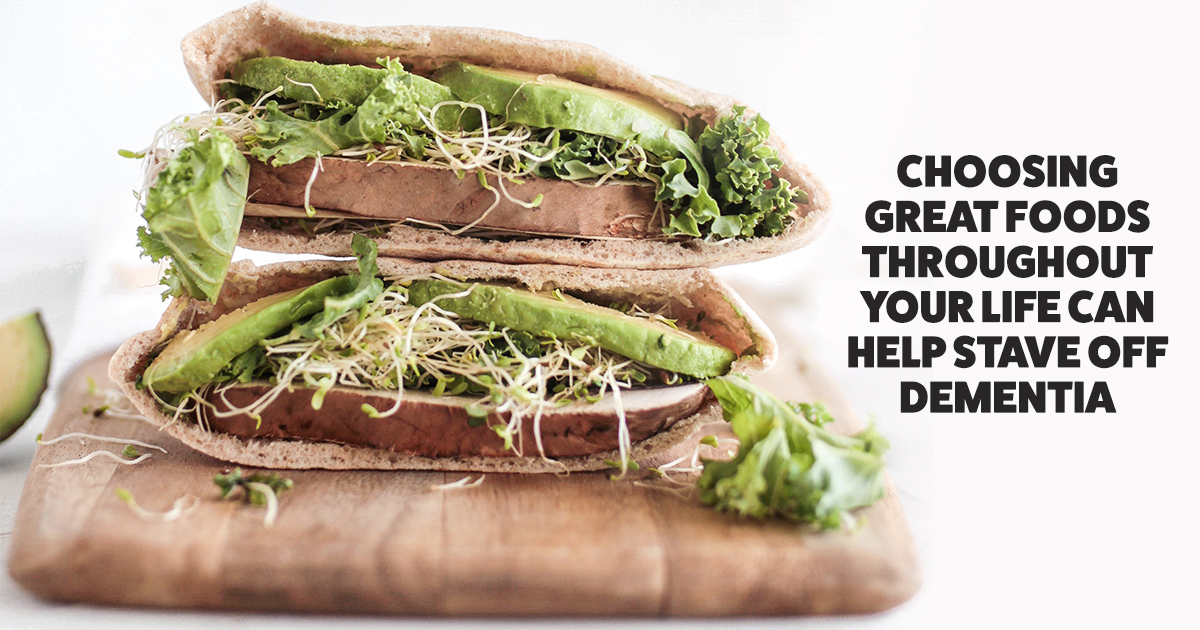This post may contain affiliate links which won’t change your price but will share some commission.
Dementia is a term used to encompass illnesses and diseases that affect memory – the most common memory-related disease being Alzheimer’s. While dementia does affect memory, it also affects critical thinking, problem solving, and language skills.
Dementia is caused by damage to our brain’s cells. When cells are damaged, they lose their ability to function as designed and stop communicating with one another. When this happens, the brain can’t function normally and thinking and feeling become impaired.
Age and genetics do play a role in the development of dementia, but there are things that can be done to offset the effects of age and family history. In the same way healthy food choices, healthy exercise, and avoiding tobacco and alcohol can help your body stay fit and healthy, they can also help the brain stay fit and healthy and lower the risk for dementia.
Making wise food choices morning, noon, and night can help infuse your brain with the fuel and the antioxidants it needs to fight off diseases and thrive. Here are some wonderful meal ideas you can incorporate into your weekly meal planning that will help make your taste buds and your brain extra happy.
Morning- Mornings are an important time to feed your brain. Your brain has been working hard during the night to clear out the clutter from the previous day. Your brain uses your down time to do specific things that refresh and prepare itself for a new day. Mornings are the perfect time to re-energize the mind and the body so they can tackle the physical and mental needs of the day.
Since whole grains are an excellent source of complex carbohydrates, a bowl of oatmeal is a perfect staple for your breakfast menu. Kick things up a notch by adding healthy flax seeds, and some walnuts to boost your omega 3 fatty acids. Finish things off with berries for an antioxidant boost.
Another grab-n-go option for breakfast are homemade breakfast bars. Combine oats, nuts, dried cherries or other dried berries with some heart-healthy natural honey. You can find great recipes for breakfast bars on social media platforms like Pinterest.
Noon- After your feel-good breakfast, it’s time to launch your lunchtime routine. Eating well during midday makes it easier to avoid the afternoon slump that can often cause brain fog and sluggishness. Eating a well-thought-out noon meal can help keep your brain and your blood sugar happy.
Since fatty fish is an excellent source of omega 3 fatty acids, create a healthy lunch beginning with a bed of spinach, layer a small salmon fillet and add tomatoes and beans for a lunch packed with brain-fuel power. Include a handful of dried berries and nuts on the side and you’re certain to be mentally acute and focused all afternoon.
Night- Dinnertime varies for everyone. Some love to eat hearty while other prefer a light supper before turning in for the night. Either way, your body and your brain need a good dose of fuel to help you sleep well and rejuvenate. Make your meal count by choosing whole foods designed to heal and help your brain.
Brown or wild rice is an excellent option for a complex carbohydrate. Pair the rice with trout, mackerel or another favorite fish. Add cruciferous veggies like red cabbage or broccoli. Season with your favorite toppings and you’re set.
Intermittent Fasting
You also have the option of skipping breakfast or dinner and having a longer period of time when your body is without food. If you are fasting with no snacks at all and only drinking water, black coffee, and plain tea, your body will experience more autophagy. Autophagy is the removal of old and dead cells and is a key tool to use to keep the brain functioning well and to prevent dementia. I recommend giving intermittent fasting a try if you want to really improve your brain health, along with healthy choices for the meals you do eat in a day.
Choosing great foods throughout your life can help stave off dementia and give your brain the best chance of staying healthy and vital well into your later years. You truly are what you eat and eating healthy foods for your brain will help you maintain your memory and cognitive skills.


Leave a Reply